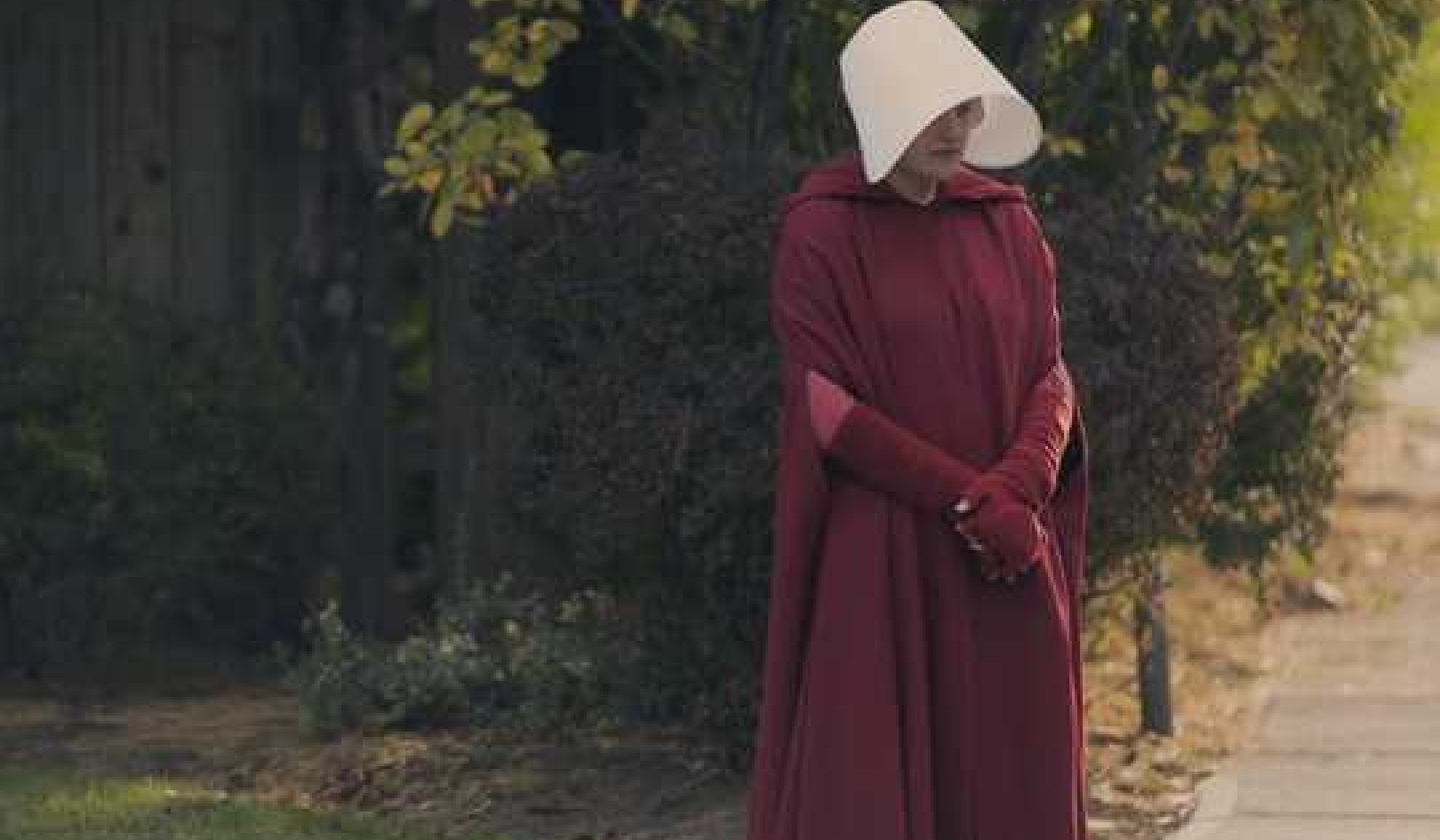
Image by robertocavagna
"Americans, who make more of marrying for love than any other people, also break up more of their marriages, but the figure reflects not so much the failure of love as the determination not to live without it." -- Morton Hunt
My friend Andrea is a popular college instructor of human relations, and a relationship counselor. She has also been married four times, and divorced three. At a party we both attended, I overheard one of Andrea's former students ask her, "How can you pass yourself off as a relationship expert when you are a four-time loser?"
Andrea responded coolly, "I don't see myself as a four-time loser; I consider myself a four-time learner. Although those marriages didn't endure, I gained valuable lessons that helped me bring more depth and presence to the relationships that followed, and ultimately contributed to the successful marriage I now have."
If You Are Wiser For Your Experience, It Was A Success.
If you feel like a loser because your marriage or relationship has ended, re-identify yourself as a learner. Rather than criticizing yourself for your shortcomings, honor yourself for the courage to grow through experience.
As evolving beings, we discover what works by evaluating the results of what didn't work; we grow as much (usually more) through our errors as we do through our successes. Like a child learning to ride a bicycle, the information we gain from falling is just as valuable as the feedback we get from staying balanced. Every attempt, whether a "success" or "failure", ultimately contributes to our skill. Seen in this way, we are always progressing toward our goal.
One of the most difficult and painful questions to answer is, "Why did your relationship fail?" When faced with such an inquiry, remember that ending is not the same as failure. Your relationship would be a failure only if you did not learn from it. If you gained insight, self-awareness, or strength, and you would choose more wisely next time, you are significantly ahead of where you began.
Begin to reframe your past relationships as successful learning experiences.
We form new relationships according to the way we think about our old ones.
If you dwell on your past failures, you will manufacture new ones. Focus on what you gained from past relationships, and you will build a foundation for success in your new ones.
Here are some criteria by which losers are distinguished from learners:
Loser
- Denies sense of sorrow, grief, or loss
- Blames partner for failure. Criticizes self for failure
- Plunges into self-pity
- Forms judgments about opposite sex
- Seeks agreement from "allies" to bolster victim position
- Turns to favored addiction to numb pain
- Seeks new relationship immediately to offset sense of loss
- Revels in ex-partner's pain or guilt
- Seeks to punish ex-partner
- Seeks retribution
Learner
- Acknowledges pain without indulging it
- Inventories own actions
- Honors self for willingness to learn
- Explores self-awareness
- Gathers information to ensure future success
- Turns to friends for support to keep mind and heart open
- Turns to Higher Power to grow beyond pain
- Takes time to get reacquainted with self and integrate experience
- Delights in ex-partner's well-being
- Offers kindness and support to ex-partner
- Lets go and gets on with life
BEYOND KEN AND BARBIE
Many "model" couples live picture-perfect marriages with fine homes in the suburbs, well-paying jobs, several expensive automobiles, and bright children who make the honor roll. Behind the scenes, however, many such marriages are devoid of intimacy, communication, and growth. In my seminars, I have heard a significant number of divorced men and women confess, "We looked great on the outside, but I was dying on the inside". Just because a couple fulfills societal expectations for a model marriage, it doesn't mean that they are achieving their deeper purpose of growing as individuals. Someone who becomes stronger and more self-aware through a painful divorce, by contrast, accomplishes more for his or her spiritual growth than one who sleepwalks through a lifeless marriage.
Do not be deceived by appearances, and do not allow yourself to fall prey to the belief that you are here to live up to the expectations of others.
Your Life Is Valuable For What Is Happening In Your Heart and Soul
If a relationship falls apart in the outer world, but you extract personal growth from it, you are succeeding in a far more meaningful way than one who amasses the symbols of success but fails to recognize his or her own inner worth. The only true measure of success, we eventually discover, is happiness.
After my book "The Dragon Doesn't Live Here Anymore" was published, I received a telephone call from a nun inviting me to present a seminar to the Catholic ministry for the divorced and separated. Sister Alice explained that many Catholics felt angry and guilty about their crashed marriages, and then she asked me what I titled my workshop. Laughing, I told her, "I usually call it 'The Dragon Doesn't Live Here Anymore', but in this case I think we should use another title."
I found that the greatest need of the participants in the divorced and separated ministry was self-forgiveness. While these people struggled with tremendous pain and grief in the wake of their broken relationships, they shouldered the added burden of condemnation from the church, which defined them as sinners for ending their marriages. Their lives were difficult enough, I surmised, without having to bear the stigma of excommunication. These folks did not need to worry about going to hell -- they were already there!
The divorced women and men in this group demonstrated great courage in leaving their marriages in the face of the ecclesiastical judgment they faced. They needed to find compassion for themselves and forgiveness for their mates. I honored the church for establishing a ministry to support this segment of their parishioners. In the long run, these people grew a great deal from facing and overcoming their fears, and they gained strength that they may not have found if they had remained in barren marriages.
BROKEN OPEN
If you have been closed or armored, a painful breakup can lead you to rediscover yourself and open to a depth of aliveness you might never have known if you had just coasted along in your comfort zone.
If your heart has been broken, let it be broken open.
Opportunities Bestowed by a Broken Heart
- Get in touch with your feelings
- Reach out for support. Appreciate the love of friends
- Gain insight into the patterns that have run your life
- Tell more truth about who you are and what you want
- Claim your power to establish your own destiny
- Express creativity (poetry, music, art, original expression)
- Discover and develop a relationship with your spiritual source
- Deepen in compassion
- Make changes in your life that you might not have otherwise made
- Learn how to find richer rewards in your next relationship
The voice of shaky love tells you that your relationship ending has ruined your life, while Big Love whispers that you now have more life available to you. The road through hell leads to the door of heaven. So your breakup merits not bitterness or resentment, but gratitude and appreciation.
Popular singer Kenny Loggins went through a major crisis when his marriage ended. As he searched his soul to discover his truth and explain his divorce to his children, he found within himself a deeper strength and love. This process moved him so profoundly that he wrote many passionate and heartfelt songs about his insights, and collected them into an album called Leap of Faith, which went on to become one of his most successful productions. Many listeners remark that the honesty and vulnerability Kenny displayed in these songs helped them through similarly challenging times. (Since that time, Kenny has remarried, and he and his new wife Julia have intimately chronicled their love and marriage in a most inspiring book and album, The Unimaginable Life.)
Similarly, when Native American descendant William Least Heat-Moon lost his job and his wife left him, he plunged into deep introspection. In the process of attempting to rebuild his broken life, William recalled his dream to explore the country. Free and unencumbered, he bought a Volkswagen van and sat down to plan his route. As he surveyed the map, William noticed that the major thoroughfares were indicated with thick red lines, while the smaller byways and country roads were marked by thinner blue lines. William realized that he wanted an adventure, and decided to travel the side roads. On his trek, he interacted with fascinating people, received many insights he would never have discovered in his old routine, and reconnected with his Native American heritage. After his two-year odyssey, William had filled his journal with a wealth of colorful stories, and he had them published. Blue Highways went on to become a national bestseller, and William Least Heat-Moon was catapulted into an entirely more meaningful world. Although he could not see the plan in the midst of his hardship, his breakup launched him into the life he had always dreamed of.
THE FAST-FORWARD AGE
We are living in a time of accelerated learning. Many people now go through two, three, or more marriages in a lifetime, and participate in many more relationships. We may have judged ourselves harshly for having several mates or numerous relationships, and we may believe that there is something wrong with us for failing the societal expectation of staying with one person for a lifetime.
But . . .
What happens to you is not as important as what you make of it.
To find peace, reframe your opinion of how you or life "should" be. You are, and have been, on your right path.
What you thought was wrong with you may be what is right with you.
In wisdom you chose to go through a number of significant relationships so you could master many lessons in a short period of time.
You have not missed your destiny; you are in the process of fulfilling it.
If you lived in an earlier century, your relationships would have told quite a different story and brought you very different lessons. You would have married one person for a lifetime, lived in one town, worked in one vocation, attended one church, and adopted one belief system. Your life would have been slower and simpler -- as would your learning. In those days, it might have taken you an entire lifetime to master the lessons of a relationship with a particular person.
Now, the pace and purpose of our relationships is different. Rather than marrying for survival, economic, social, or political expedience -- and being assigned to a spouse by your parents, priest, or an astrologer -- we marry for love, romance, companionship, communication, sexual expression, and spiritual growth -- of our own free will. These higher ideals and increased levels of personal responsibility call forth all kinds of issues that marrying for survival never touched on. In greater soul maturity, we have taken on deeper, richer, more subtle, and more varied lessons. In accordance with our curriculum, our life changes call us to face our fears, confront our unconsciousness, and bring light to the shadow selves we have chosen to master.
Several marriages or many relationships in a lifetime are not necessarily signs of weakness; they may be an indication of your dedication to discover greater truths about who you are and what you are here to do. If, at the end of your life, you are a wiser person for your relationship experiences, they have all been worth it. And . . .
If you have learned to love, you have fulfilled your highest purpose.
No matter how many relationships you have gone through, marriages you have ended, or mistakes you have made, never define yourself as a loser. Instead, be grateful for the awareness you have gained, and be proud of yourself for your bravery in learning by doing. Recognize that you are not the person you were 20 years, or even 20 days, ago. Remember that the Big Picture is unfolding perfectly even if you do not see it in a given moment.
Real learning usually occurs gradually -- rarely overnight. You are always adding to your wisdom. When you disown your identity as a loser and adopt that of a learner, you are on your way to being a master. One day you will discover that everything that has happened to you has been an element in your awakening to the beauty in you and around you. Then you will be able to bless all experiences and honor everyone who assisted you to grow.
Article Source
Happily Even After: Can You Be Friends After Lovers
by Alan Cohen.
 "Happily Even After", by Alan Cohen shows us how to approach relationship parting in a way that bestows us with strength and empowerment, rather than pain and sadness. Alan tells us that we should define the success of a relationship by the quality of aliveness we experienced while the relationship thrived, and that although you may no longer have romantic love for each other, you can have a spiritual love that can endure forever.
"Happily Even After", by Alan Cohen shows us how to approach relationship parting in a way that bestows us with strength and empowerment, rather than pain and sadness. Alan tells us that we should define the success of a relationship by the quality of aliveness we experienced while the relationship thrived, and that although you may no longer have romantic love for each other, you can have a spiritual love that can endure forever.
Info/Order this book. Also available as a Kindle edition.
About The Author
 Alan Cohen is the author of the bestselling A Course in Miracles Made Easy and the inspirational book, Soul and Destiny. The Coaching Room offers Live Coaching online with Alan, Thursdays, 11 am Pacific time,
Alan Cohen is the author of the bestselling A Course in Miracles Made Easy and the inspirational book, Soul and Destiny. The Coaching Room offers Live Coaching online with Alan, Thursdays, 11 am Pacific time,
For information on this program and Alan’s other books, recordings, and trainings, visit AlanCohen.com
More books by this author




























